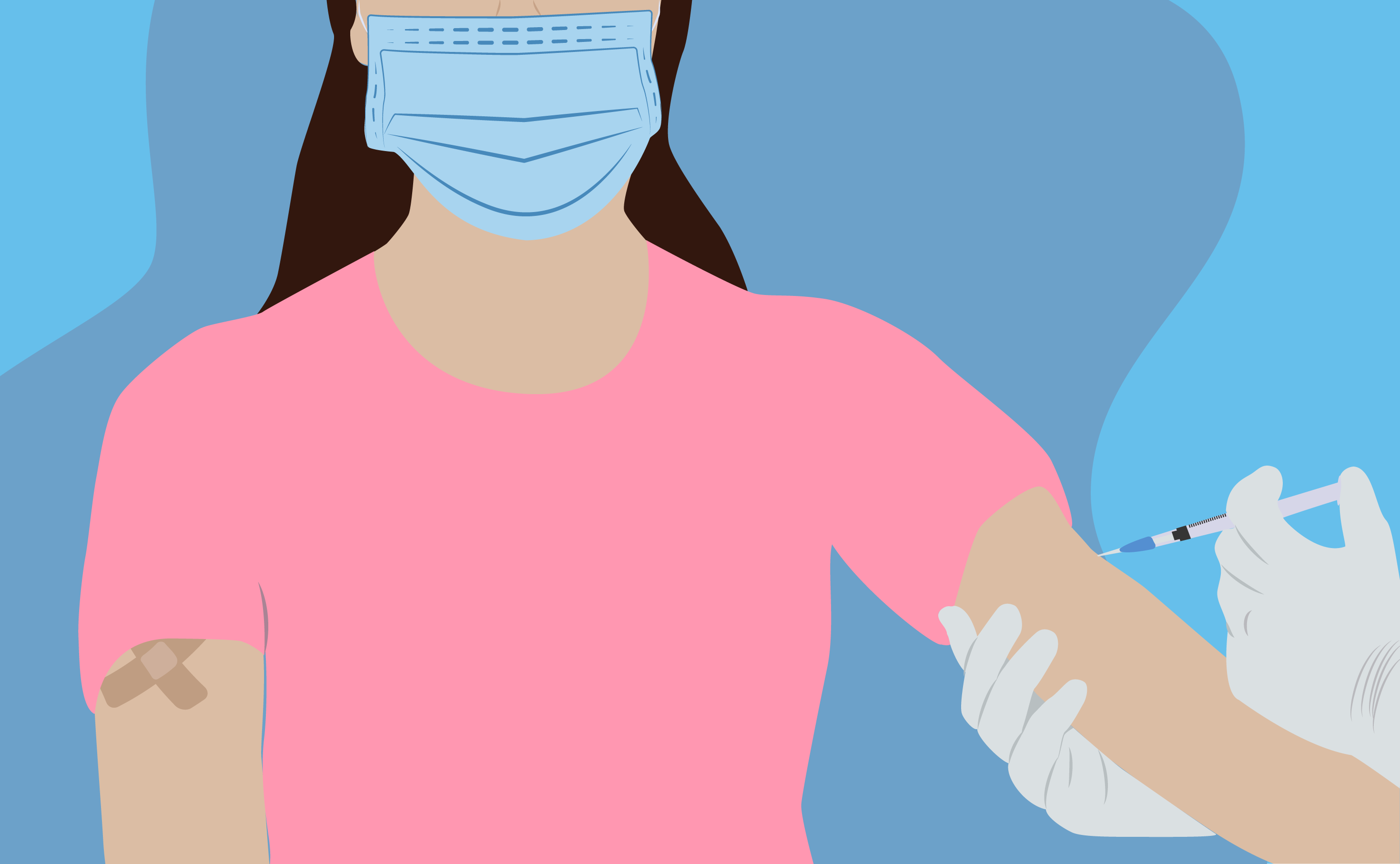As you might’ve heard, health experts are worried about the U.S. experiencing a potential twindemic this winter — a collision of Covid-19 and seasonal flu cases that overloads our hospitals and healthcare systems. And with the world reeling thanks to news of the new Covid variant Omicron, there’s even more cause for concern. While scientists and health experts devote their energy to researching this new mutation and its potential risks, we need to protect ourselves against the flu in the meantime. After all, nobody wants to see an eight-car pile-up of severe flu and Covid cases right as we’re approaching the pandemic exit. So how can we prevent this mash-up from happening?
It’s important to realize that the flu season usually hits its peak in December, January, and February, according to Kathy Driscoll, Humana’s chief nursing officer. And the best way to protect yourself is by getting your flu shot. But don’t wait long: Just like with the Covid-19 vaccine, it takes weeks for your body to build enough antibodies in your system to protect you against a virus. “Everyone should get the flu shot (after consulting with their physician) and people should really think about getting it now,” says Driscoll.
Even though last year’s flu season recorded unusually low cases, a repeat isn’t guaranteed this season. “If we think back, [last year] was a time when many of us were quarantined, staying at home, staying vigilant about good health hygiene, and weren’t traveling around,” says Driscoll. “And if we went out, we wore masks. Hopefully people have held onto a lot of those hygiene habits — like proper hand washing and staying home if they’re not feeling well— but there’s a lot more exposure now.” Another reason why healthcare professionals are worried about a spike in flu cases this winter? Because cases were so low last year, a portion of the population wasn’t able to build up natural resistance — since they either didn’t catch the flu, or weren’t exposed to it, explains Driscoll.
Below, we checked in with Driscoll regarding some frequently asked questions: if it’s safe to get the flu shot at the same time as your Covid booster, differences between Covid and the flu, and ways to help protect yourself and your community — so we don’t have to hear the word “twindemic” ever again.
Is it safe to get your flu shot and Covid-19 booster shot at the same time?
The short answer is yes. Not only does it save you from making two trips to the doctor’s office, studies show that it’s perfectly safe. “We’ll usually give them in different arms so you don’t get one really sore arm — but that should be the major side effect of getting both of them together,” says Driscoll.
And it’s worth noting: The CDC recently announced that anyone over 18 who originally got the Pfizer or Moderna vaccine is now eligible for a Covid booster shot.
Can getting both vaccines at the same time cause an adverse reaction, or reduce the efficacy of either shot?
Not according to science. “They’re building up your immunity to different things — just like your body builds up natural immunity to different germs around us every day,” says Driscoll.
Since each vaccine focuses on building antibodies for different viruses, it doesn’t give any terrible side effects or weird interactions. “They’re targeted to different parts of immunity that your body needs, so it’s actually just making it stronger to create antibodies that are specific to both the influenza and to Covid,” says Driscoll.
If I do get sick, how do I know if it might be Covid or the flu?
It’s important to familiarize yourself with the different symptoms between the two. “With the different Covid variants, we’ve seen everything from gastrointestinal symptoms, to runny nose, cough, fever, headache, losing taste and smell — there’s a real variety of symptoms,” says Drisoll. “There’s usually achiness with influenza that people aren’t seeing with Covid, but the symptoms can be similar,” says Driscoll.
The best thing to do if you’re feeling under the weather is to speak to your physician, get tested, and follow their guidance. And a friendly reminder: Stay home and away from others when you feel sick. Both viruses are spread primarily through respiratory droplets, meaning you can be contagious and get others sick if you’re not careful.
What other ways can I boost my immune system ahead of cold and flu season?
Self-care shouldn’t be an aspirational after-thought. Maintaining a healthy routine actually has major benefits and can even help build up your immune system to fight off germs, explains Driscoll. “Self-care is very foundational. Taking care of your body, getting enough sleep, eating appropriately, drinking plenty of fluids, exercising — we should be doing all of these regularly.” Anything you can do to prevent a mountain of stress from piling onto your shoulders will also help.
You might also want to think twice about packing yourself onto a crowded subway or a tight concert venue. “The more we can do to stay away from situations where we might be exposed to lots of germs, the better,” says Driscoll.
Why is it so important to prevent a potential twindemic this year?
“It’s important to protect yourself, but also to think about the broader community — your family, friends, loved ones, and the communities that you live in,” says Driscoll. “Healthcare systems can easily get overwhelmed, so if the Covid booster is appropriate for you right now, it’s important to avail yourself of that. And seasonally, it’s very important that we all think about getting the flu vaccine and take preventative measures that will help keep us from getting sick — so we don’t overwhelm a system that might already be struggling.”
The information provided on this site isn’t intended as medical advice, and shouldn’t replace professional medical treatment. Consult your doctor with any serious health concerns.









